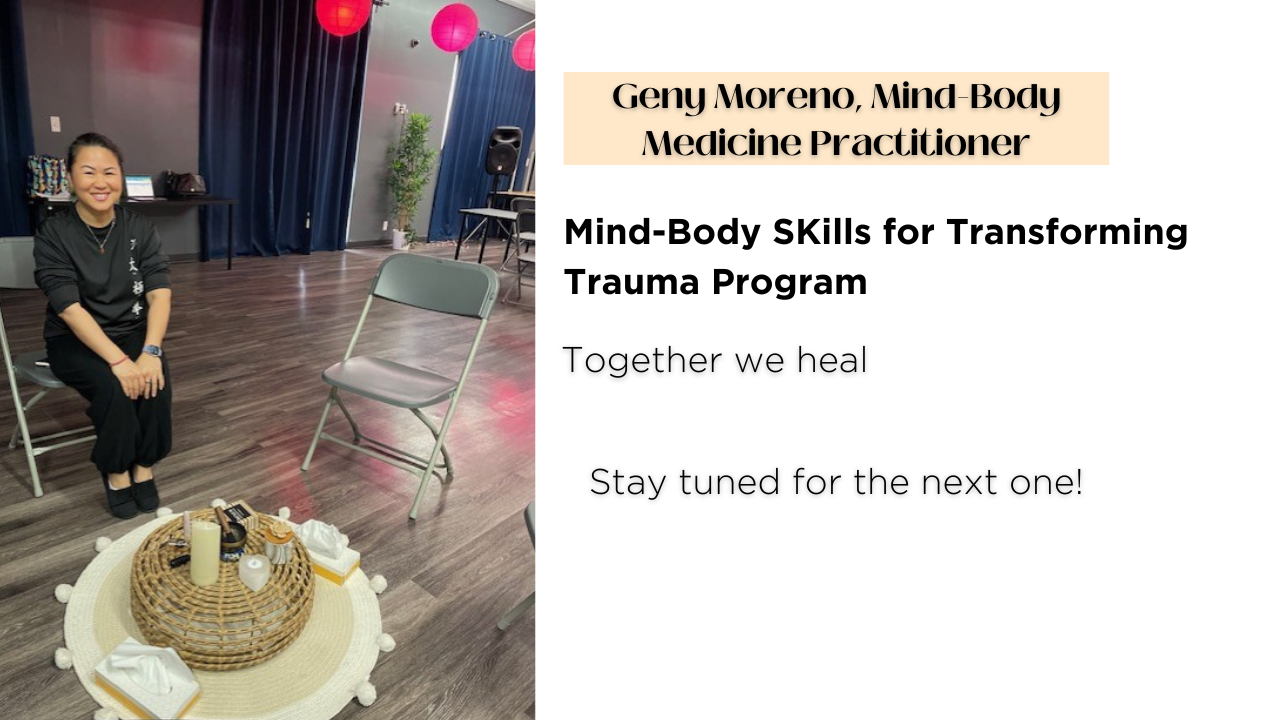Blog
Enhancing Emotional Intelligence and Mindfulness

At Texas Center for Lifestyle Medicine, we're committed to empowering individuals through innovative approaches to health and wellness. One such approach is our group visit program, where we delve into the intricacies of the healing journey and support each other in managing life's challenges.
Understanding the Code and Aura: A New Framework for Emotional Intelligence
In our recent group visit, we explored a new framework for emotional intelligence and emotional wellness,, designed to help you identify and understand your subconscious archetypes and emotional responses. This framework consists of two vital components: the "Code" and the "Aura."
-
Code: The Code represents four archetypes of human consciousness: Commander, Organizer, Diplomat, and Examiner (CODE). Understanding your dominant archetype can aid in how you interact with others and perceive the world.
-
Aura: The Aura quantifies your emotional intelligence in various situations, based on Awareness, Understanding,
...
Exploring the Role of Co-Regulation, Relationships, and Somatic Release in Holistic Health

At Texas Center for Lifestyle Medicine, we recently hosted an insightful podcast-style discussion that delved into the profound connections between trauma, physical health, and brain health. This narrative explores the journey of a patient who experienced a remarkable transformation after attending a mind-body trauma release class. By focusing on holistic healing techniques and supportive community practices, this individual was able to reconnect with their body and find newfound vitality.
Understanding the Mind-Body Connection Dr. Brian Plante, a naturopathic physician at the Amen Clinics, shared his expertise on the importance of addressing the whole person to promote brain health and overall wellness. He emphasized the role of trauma in disrupting normal stress cycles and how unresolved emotional issues can manifest physically. Dr. Plante explained that when emotions are suppressed, the sympathetic nervous system goes into overdrive, keeping the body in a constant state of aler
...The Dance of Healing: Finding Balance Between Solitude and Connection

A Mindful Monday Reflection from Texas Center for Lifestyle Medicine
In our journey toward wellness, we often encounter moments that feel like what mystics have called the "dark night of the soul"—those periods of deep introspection, solitude, and sometimes profound loneliness. But here's a question worth pondering: Is this retreat into darkness truly healing for our mind and spirit, or might we be missing something essential?
The Paradox of Healing
While solitude and introspection certainly have their place in our healing process, modern research reveals something that might surprise you: healing happens most powerfully in the context of relationships. This creates an interesting paradox. The very relationships that can wound us deeply—especially those marked by unhealthy dynamics—are also the spaces where our most profound healing can unfold.
Think about it: it takes a special kind of love to reach into the dark, wounded places within us. Not just any love will do. It req
...Ask the Expert: Posture, Fascia and Function with Dr. Tiffany Poole and Kristie Gatto

In our quest to improve overall wellness, we host a series called "Ask the Expert," where each month we introduce a new guest speaker to share their expertise on various health topics. This time, our spotlight focused on the fascinating interplay of posture, fascia, and function, with Dr. Tiffany Poole, a chiropractor, and Kristie Gatto, a certified myofunctional and speech therapist, leading the discussion.
Understanding the Connection: Posture, Fascia, and Health
The session began with an in-depth exploration of the integral role fascia plays in our body. Often overlooked, fascia is a band or sheet of connective tissue, primarily collagen, that sits beneath the skin and wraps organs, muscles, and other structures. This connective tissue not only shapes our anatomy but also facilitates bodily functions and can influence our overall health and posture.
The Expert Insight
Dr. Tiffany Poole emphasized the structural alignment's role in health, highlighting how a misalignment can
...Transforming Trauma: A Journey of Healing and Community

This week at TCLM, our mind-body medicine practitioner Geny Moreno is wrapping up her transformative six-week "Mind-Body Skills for Transforming Trauma" group program, and the results have been nothing short of extraordinary.
A Holistic Approach to Healing
Throughout this powerful journey, Geny has guided attendees through a comprehensive toolkit of mind-body healing modalities. Participants have explored genograms to understand family patterns, engaged in somatic release techniques to unlock stored tension and emotions, and learned to combine breath work with movement for enhanced self-regulation and coping strategies. These evidence-based approaches address trauma not just mentally, but as it lives within the body itself.
One of the most powerful aspects of the program has been the moderated group sharing sessions. In these sacred spaces, Geny has created an atmosphere of safety and non-judgment where attendees can hold space for one another, sharing vulnerably and authentically. ...
Hormonal Health: 7 Surprising Ways Women Disrupt Their Hormonal Balance

Hormones are the body's chemical messengers, orchestrating everything from metabolism and mood to reproduction and sleep. For women especially, maintaining hormonal balance is crucial for overall wellbeing. Yet many of us unknowingly engage in daily habits that throw these delicate systems into disarray.
Understanding what disrupts your hormonal balance is the first step toward reclaiming your health and vitality. In this post, we'll explore seven common factors that can wreak havoc on women's hormonal systems—and what you can do about them.
1. Sleep Deprivation: The Silent Hormone Disruptor
That late-night Netflix binge isn't just making you tired—it's throwing your hormones into chaos. Quality sleep is fundamental to hormonal regulation, particularly for cortisol (your stress hormone), insulin (your blood sugar regulator), and reproductive hormones like estrogen and progesterone.
When you consistently shortchange your sleep:
- Your hunger hormones get confused (hello, ghrelin ...
How our Upbringing can Shape our Healing Experiences

In the journey of healing, understanding the deep-seated impact of family dynamics and emotional patterns is crucial. We often find that trauma isn't just what has happened to us but sometimes what was missing during our formative years, like emotional neglect or absence of support. With this in mind, Geny Moreno, a mind-body medicine practitioner, is excited to introduce our upcoming Mind-Body Healing Groups designed to help you navigate and transform your trauma, starting next week.
Understanding Family Dynamics and Emotional Patterns
Healing begins with awareness. In the words of renowned speakers on the subject, the impact of subtle neglect and lack of emotional expression during childhood can profoundly shape our adult relationships and behaviors. This is especially true for those of us who suppress emotions tightly or express them with difficulty. These behaviors can stem from early interactions with caregivers who were not fully present or supportive, leaving a need for emotio...
Spiritual Bypassing: Emotional Avoidance Disguised as Spirituality

In our pursuit of personal growth and well-being, spirituality often plays a significant role. It can provide us with a sense of transcendence and connection beyond our immediate reality, resonating across various practices, whether through Eastern philosophies or Christian traditions of surrendering to God. Yet, as with any powerful tool, it's essential to understand its appropriate use. This understanding brings us to the concept of spiritual bypassing.
What is Spiritual Bypassing?
Spiritual bypassing is a phenomenon where individuals rely heavily on spiritual practices or ideologies to sidestep personal responsibility. This can become problematic when spirituality becomes a means of avoiding necessary actions on a more human, practical level.
While spirituality can offer profound support and meaning, overreliance on it can hinder personal growth and healing. For instance, some might lean on prayer or meditation exclusively, while neglecting therapy or medical treatment essential ...
MTHFR Gene: Do I need to know what's in my Genes?

Understanding MTHFR: Personalized Health at Texas Center for Lifestyle Medicine
At Texas Center for Lifestyle Medicine (TCLM), we believe in addressing the root causes of health issues to provide comprehensive, personalized care. One question we are often is asked is whether or not we should be concerned about MTHFR gene and its impact on overall health. MTHFR may impact various health pathways related to sleep quality and vitamin metabolism.
What is MTHFR?
MTHFR stands for methylenetetrahydrofolate reductase, an enzyme crucial for various bodily functions. This enzyme plays a vital role in:
-
Converting folate into its active form for the body to use effectively
-
Processing amino acids
-
DNA production and repair
-
Methylation processes essential for cellular function (methylation is one method that our bodies use to express genes. Gene expression and silencing translates to turning off or on inflammatory pathways. Such pathways may be associated with risk of develo
...
Exploring the Comprehensive Benefits of Pelvic Floor Physical Therapy

Pelvic floor physical therapy (PT) is a specialized form of rehabilitation that focuses on the pelvic floor muscles, playing a crucial role in alleviating a variety of symptoms and improving overall quality of life. This therapy can address bladder control issues, chronic constipation, prolapse, posture-related pain, circulation issues, and more. While often associated solely with the pelvic area, pelvic floor PT involves a holistic approach that considers the entire body's functionality and alignment.
Understanding Pelvic Floor PT Benefits
Bladder Control and Pain Management
Pelvic floor PT is particularly beneficial for individuals facing bladder problems. Whether it's involuntary leakage during activities like coughing and sneezing or frequent, sudden urges to urinate, these symptoms can often be traced back to pelvic floor dysfunction. Additionally, some individuals experience bladder pain mimicking urinary tract infections without any actual infection present, underscoring th
...